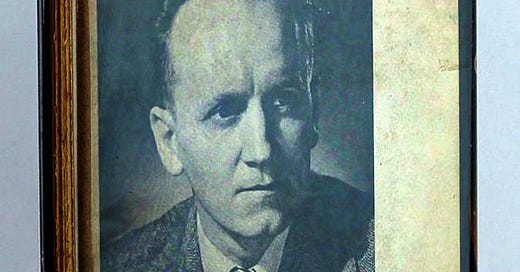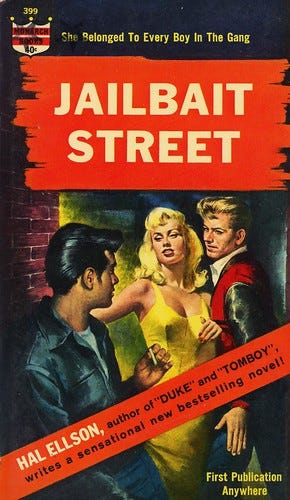As Hal Ellson has shown again recently in his book Tomboy, children who commit serious delinquencies often suffer from "insecurity and fearfulness."
Harold "Hal" Ellson was an American author of pulp fiction whose work primarily focused on juvenile delinquency, a field in which he has been described as "one of the most popular" writers and as "legendary".
Ellson was a social worker, recreational therapist, and nurse's aide at Bellevue Hospital, where he encountered the adolescent psychiatric patients on whom he based much of his fiction; he subsequently stated that many of the patients viewed him as a "father confessor", and eagerly told him their stories while trusting that he would not report them to law enforcement. As a result, Nelson Algren described Ellson's work as "just straight case studies."
Wertham was an aficionado of Ellson's work, favorably reviewing Ellson's 1949 novel "Duke" in The American Journal of Psychotherapy and providing an introduction to Ellson's 1950 novel Tomboy.
Mike Shayne's Mystery Magazine published reprints of Ellson's short stories such as Walk Away Fast (copyright 1956 by Renown Publications, Inc.) in its October 1970 issue as well as publishing several of Ellson's original short stories from 1963 to 1981. Ellson's short fiction appeared in Alfred Hitchcock's Mystery Magazine from 1963 to 1983.
Harlan Ellison cited Ellson's work as having inspired his own interest in juvenile delinquency — an interest which led directly to the writing of Ellison's first novel, Web of the City. Ellison also stated that in the earliest days of his career as a writer, he was often mistaken for Ellson writing under a pseudonym — and that decades later, when Ellison had become much more known and Ellson's career had waned, Ellson was often mistaken for Ellison writing under a pseudonym.
Children who are insecure and fearful are certainly in danger of committing a delinquent act. Just as there is such a thing as being pre-delinquent, so there are conditions where a child is pre-insecure, or pre-fearful. Would it not be better, for purposes of prevention, instead of making an illogical contrast between a social category like delinquency and a psychological category like fearfulness, to think of children in trouble - in trouble with society, in trouble with their families or in trouble with themselves? And is it not likely that "too much exposure to horror stories and to violence" is bad for all of them when they get into trouble, and before they get into trouble?





